
Fishing is a beautiful and exciting hobby. It connects you with nature and relaxation. Fishing brings a lot of good changes in your life by improving your mental and physical health. Safety should be a top priority; make your fishing tour more enjoyable by following all the safety precautions. However, amid the peaceful waters, it’s vital to brace for the unforeseen. Unwanted events can mar even the most ideal fishing outings. Following these precautions and safety measures can answer how to face unwanted incidents during fishing. Therefore, let’s explore the safety measures that every angler should master.

How to Face Unwanted Incidents During Fishing
Basic Safety Requirements for Fishing
Before casting your line, make sure you’ve ticked off the safety checklist. Ensure you have a well-fitted life jacket, especially if fishing from a boat. Even if you’re an experienced swimmer, unexpected events can occur, and a life jacket could be your lifeline. Furthermore, carrying a basic first aid kit and knowing emergency contact numbers adds an extra layer of preparedness.
Fishing with Kids- Why It’s Best to Wait
While fishing can be an excellent family activity, it’s advisable to leave kids under four years old alone. Young children might need help comprehending the importance of staying still or following safety instructions. Patience and attention are essential while fishing; kids under four might struggle to stay engaged without becoming restless. Their safety and fishing experience are better suited for a slightly older age.
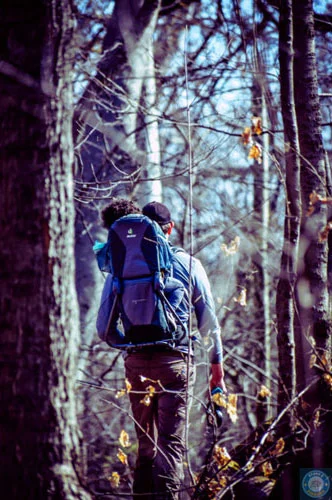
Dealing with Nature’s Surprises
Picture this– You’re amidst a serene fishing spot, and a wild animal like a bear suddenly appears. Stay calm and avoid any sudden movements. Slowly and quietly gather your belongings and create distance between yourself and the animal. In such situations, it’s best to leave the area gracefully and let the animal move naturally. Respecting wildlife is not only safe but also preserves the harmony of the ecosystem.
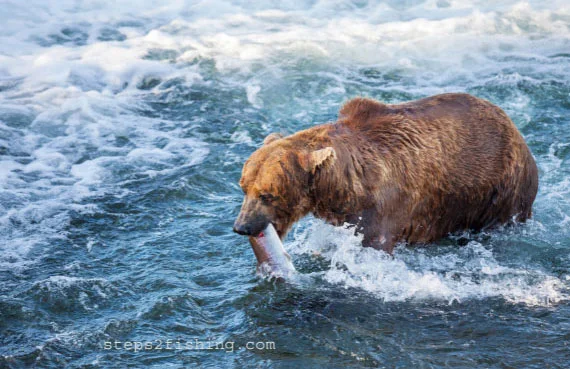
Fishing Solo in Dangerous Areas- A Risk Not Worth Taking
While fishing solo can be therapeutic, doing so in dangerous or isolated areas is a gamble with safety. The charm of these spots often comes with their risks, including treacherous terrains, unexpected currents, or even hazardous wildlife encounters. A fishing buddy can make the experience more enjoyable and provide extra eyes and hands in emergencies.
The Importance of Swimming Skills- Stay Safe Around Water
Basic swimming skills are essential whether you’re fishing from the shore, boat, or dock. Accidents can happen, and being comfortable in the water gives you the confidence to navigate unexpected situations. It’s not about being an Olympic swimmer but having the ability to stay afloat and reach safety if needed.
Tips for Facing Unwanted Incidents During Fishing
Understanding the Waters
Before heading out to fish, it’s crucial to understand the water conditions of the fishing location. Research the water currents, tides, and potential hazards. Additionally, familiarize yourself with local fishing regulations to avoid legal issues.
Essential Fishing Gear
Invest in proper fishing gear and safety equipment. A life jacket, first aid kit, and a whistle are essential items to have on hand. Moreover, quality fishing gear reduces the chances of equipment failure during your trip.
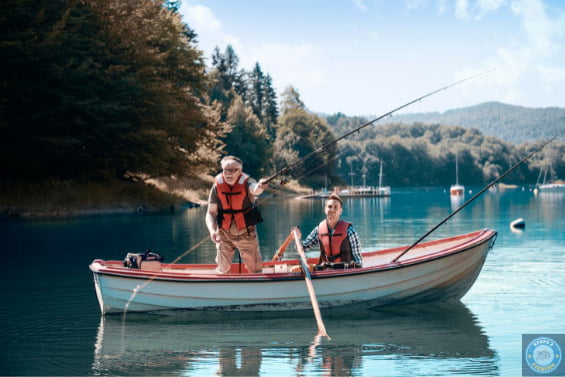
Weather Awareness
Monitor weather forecasts before your fishing excursion. Sudden storms can be dangerous, especially if you’re fishing from a boat. If lightning is a possibility, seek shelter immediately and avoid open water.
Casting with Caution
Practice mindful casting techniques to avoid injuring yourself or others. Be aware of your surroundings and ensure no one stands too close when you cast your line. Hook accidents can lead to severe injuries.
Sturdy Footing
Wearing appropriate footwear with good traction is crucial. Slippery rocks or muddy riverbanks can lead to falls and injuries. Choose footwear that provides stability and protects your feet.
Boating Safety
When you are fishing from a boat, always wear a life jacket. Boat maintenance is essential after every long fishing tour. Your boat should be fit with all required safety equipment. Performing regular maintenance helps decrease the chances of experiencing breakdowns while you’re out on the water.
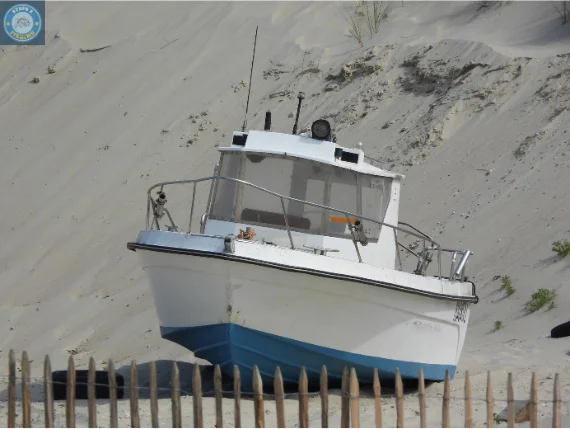
Wildlife Encounters
Respect marine life and avoid disturbing aquatic animals. Some fish have sharp spines or teeth that can cause injury. In encounters with unwanted wildlife, remain calm and slowly move away.
Sun Protection
Always use sunscreen, sunglasses, and a wide-brimmed hat to protect yourself from the sun’s rays. Stay hydrated during your fishing adventure, and keep safe from the heat. Drinking plenty of fresh water can be helpful in this fun.
First Aid Preparedness
Carry a basic first aid kit with bandages, antiseptic, and necessary medications. Also, list emergency contacts in case of severe injuries or health issues. If you are taking any regular medicine, please contact your doctor before going on a fishing tour.
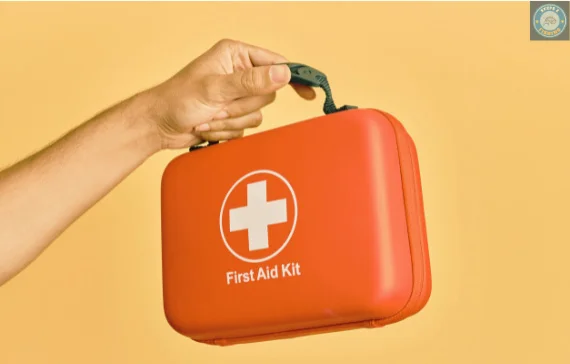
Fishing with Companions
Fishing with a buddy enhances safety. If an accident occurs, your companion can assist or seek help. Maintain effective communication to ensure everyone’s well-being.
Line and Tackle Maintenance
Regularly inspect your fishing line for signs of wear or damage. A weakened line can break easily, leading to lost fish or accidents. Use pliers for hook removal to avoid injuring yourself.
Proper Lure Handling
Handle fishing lures with care to prevent hook injuries. Keep your fingers away from hooks, and use pliers to remove hooks from caught fish. This reduces the risk of accidental hooking.
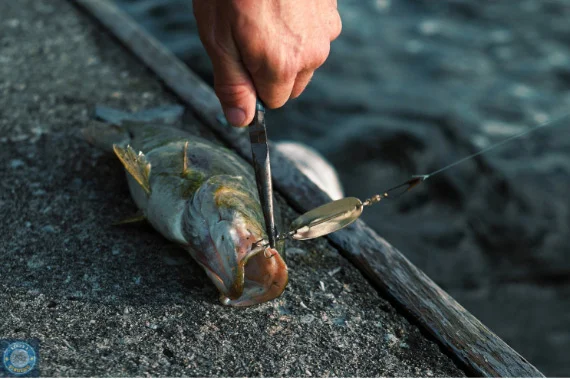
Caring for the Environment
Practice responsible fishing by disposing of bait and trash properly. Keep the fishing area clean to protect the environment and ensure a pleasant experience for everyone.
Avoiding Crowded Areas
Fishing in crowded areas can lead to tangles and conflicts with other anglers. Find quieter spots where you can fish without the risk of tangled lines or disagreements.
Knowing When to Call It Quits
If you feel dangerous or unsafe, leave the area immediately and end your fishing trip, especially in weather-changing conditions.
Pay Attention to Signboards on Fishing Spots
The excitement of casting your line and reeling in those catches can be overwhelming at your favorite fishing spot. However, keep that enthusiasm from closing your eyes to the valuable information on signboards.
These signboards are not mere decorations; they hold crucial insights about the area you’re about to explore. Whether indicating fishing regulations, water conditions, or potential risks, reading and heeding these signs can make all the difference in your fishing journey.
Sign boards are like personal guides, providing essential details to help you safely and responsibly navigate the fishing spot. They might inform you about the types of fish that are abundant in the area, allowing you to tailor your bait and techniques for maximum success. Moreover, they can alert you about restricted zones or conservation efforts, ensuring you fish within legal and ethical boundaries.
Ignoring signboard instructions
Ignoring signboard instructions can lead to unwanted incidents, such as unintentionally venturing into prohibited areas, disturbing delicate ecosystems, or risking your safety. Think of these signboards as a way to enhance your fishing experience rather than as limitations. Following their instructions safeguards the environment and prevents fishing opportunities for yourself and the next generations.
Conclusion
Fishing combines tolerance, skills, and respect for the environment. To truly enjoy every moment, it’s crucial to prioritize safety. By adhering to basic safety requirements, being mindful of potential wildlife encounters, and embracing the idea of fishing companionship; you can make each fishing trip memorable for all the right reasons.
Remember, the waters are waiting, the fish are biting, and you’re set for an exhilarating and secure adventure with the proper precautions.
FAQs
Q. What should I eat before deep sea fishing?
A. You should eat a balanced meal rich in carbohydrates and proteins, such as whole grains, lean proteins, fruits, and vegetables.
Q. What are the fishing risks?
A. Risks include seasickness, unpredictable weather, and fishing-related hazards that can lead to injuries.
Q. How do you prevent scratches when fishing?
A. Wear protective gloves to prevent cuts and abrasions while handling fishing equipment.
Q. What should you do when you are going fishing?
A. Prepare by checking the weather, gathering the right equipment, and learning about fishing safety measures.
Q. What can you eat to prevent seasickness?
A. Ginger and over-the-counter medications can help alleviate seasickness symptoms, stay hydrated, and focus on the horizon.
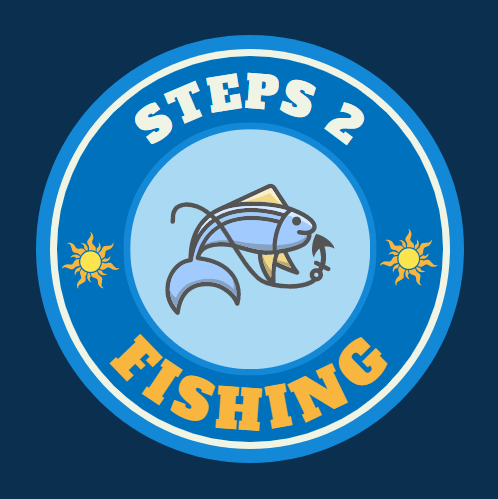

Very intresting belog. I have got the answers which i needed.
Thank you so much for your kind comment.
Good material, helped a lot.
Stay Blessed.
Thank you so much for your feedback.